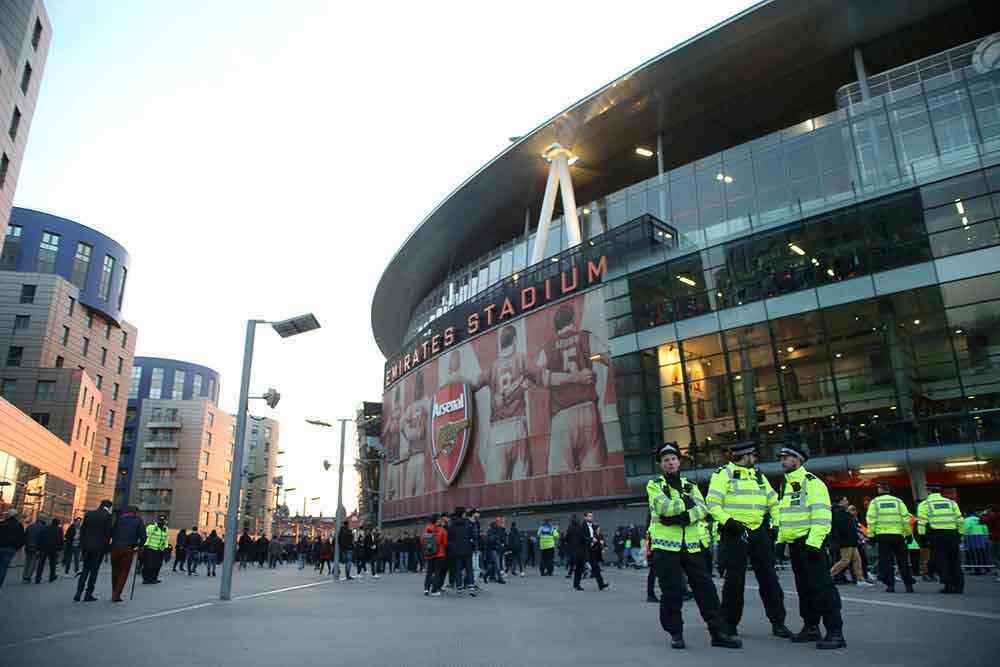Referees have come under heavy scrutiny this summer in Russia following the introduction of the video assistant referee, or VAR for short.
Being used on the world stage for the first time, the technology has divided opinion.
At times, it’s been used effectively, doing the job it was brought in for in the first place near perfectly. Pulling back the play to re-evaluate fouls in the penalty area has proven a big winner in most people’s books – VAR clarifying questionable decisions the referee simply cannot see fully with the naked eye.
Australia (twice), France, Tunisia, Argentina, Portugal and Denmark are just some of those who have benefited from the use of VAR, earning them penalties (and subsequently points), that would have been otherwise missed.
One area in which the use of VAR has ultimately failed however, is that to identify grappling from corners and set-pieces in the box.
Harry Kane was man-handled on numerous occasions in England’s narrow 2-1 victory over Tunisia earlier in the week, however no penalties were given despite clear fouls on the Tottenham hitman shown on the replay.
The same also happened in Russia’s game versus Egypt, where Hector Cuper’s defenders did their utmost to keep the potent aerial threat of Artem Dzyuba at bay by any means possible. On both of these occasions, the referee’s blushes were spared – both England and Russia running out eventual winners in both games.
Last night when Switzerland played Serbia (in what was arguably the game of the tournament so far), that was sadly not the case.
Aleksandr Mitrovic had given Serbia a first-half lead with a brilliant headed goal, and threatened to add a second on numerous occasions with his great movement in the opposition box.
Had it not been for some WWE style treatment at the hands of the Swiss back-line, he without doubt would have done. More than once the Newcastle United striker was visibly wrestled to the ground to prevent a clear goalscoring opportunity. Referee Dr. Felix Brych failed to award a penalty, and then he and his officials failed to utilise VAR to replay the incident.
Switzerland went on to come from a goal behind to win the game, Xherdan Shaqiri’s last minute winner all but securing a safe passage for the Swiss into the last 16, while giving Serbia’s hopes of doping the same a huge dent.
Serbian football association Vice President Savo Milosevic blew up after the defeat, bemused at the official’s decision(s) not to utilise VAR, saying: “I understand maybe the referee didn’t see it, but that’s why we put VAR on. What are (those) guys doing up there?” He adds, “Two decisions in two games is too much. This is a World Cup.”
Former Premier League star Michael Bridges described it as “disgusting”.
The maxim on the use of VAR in Russia has been ‘minimal interference for maximal impact’, and in many respects that has been the case.
Against Spain, Portugal were awarded a fourth minute penalty after a brief stoppage to give Cristiano Ronaldo the chance to open the scoring for his country. Minimal interference, maximum impact.
For France, the same was true against Australia, as a brief check of the replay by referee Andres Cunha for a foul on Kylian Mbappe saw his original decision of play-on overturned and a penalty awarded. Antoine Griezmann converted from the spot and Didier Deschamps’ side went on to win 2-1. Minimal interference, maximum impact.
Serbia’s unawarded penalties yesterday also fit that modus operandi. Aleksandr Mitrovic was brought down in the area and denied a clear goalscoring opportunity. VAR was not used and no penalty was awarded. Switzerland went on to win the game, and leave Serbia’s last-16 hopes hanging in the balance. Minimal interference, maximum impact.
Nobody wants to see a game of football stopped every five minutes to check potential fouls.
However, officials simply must do more on occasions such as last night. Tighter scrutiny from the referee and his team at set-plays is a must in the coming days and weeks. The longer such offences go on unpunished, the more it will happen.
The World Cup has been brilliant so far, and for the most part so too has VAR.
It however would be a huge shame to see such a sensational spectacle marred by controversy.
Whoever takes to the field on July 15th in Moscow, we hope to be talking about 90 minutes of unforgettable football, and not poor refereeing decisions which could have been changed had the technology at hand been used properly.
